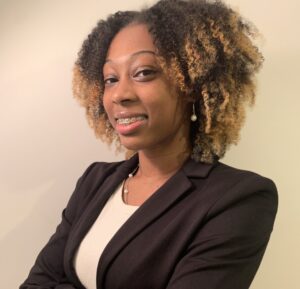Land and Labor Acknowledgement
I would like to take a brief moment to acknowledge and reflect on the sacrifices and contributions of those who inhabited this land before us. It is imperative that we remain conscious of the long-lived history of the land we currently reside in, by reflecting on the experiences of not only the Indigenous people, but enslaved peoples as well. The land in which I currently reside was previously home to the Eastern Cherokee and Muscogee Creek, the two original native tribes of Georgia. In addition, it was home to enslaved Africans, who built the foundation of our nation. Both groups are marginalized even today, as colonialism is an ongoing process. We should always be mindful of how we contribute to colonialism, and ways in which we can combat the effects of it.
Current Racial Disparities in American Theatre
Often times in our society, we mistake change for progress, especially in regards to racial equality and justice. Now don’t get me wrong, there has been racial progress since the emancipation of enslaved people. However, in the same breath, there has been racist progress as well. In other words, although there are forces that constantly push for equality, there are also counter forces that seek to maintain racial inequity, as well as racist policies, and ideas. These forces have become more sophisticated over time, and created an “illusion of inclusion.” Thus, as a society we become blinded to the ever-changing systems which are implemented to perpetuate the oppression of Black, Indigenous, and people of color (BIPOC). Yet, it is imperative that we identify and eradicate these more sophisticated manifestations of racism because they are a disease. In fact, Ibram X. Kendi, director of Boston University’s Antiracist Research Center, compares the concept of racism to a cancerous tumor cell, in that it spreads to every institution of our society and infects it.
Theatre is one of these infected institutions that many tend to overlook due to its rather progressive history and atmosphere. Nonetheless, the funding of all-white seasons, and all-white casts, with the exception of tokenized renditions, elucidates the white supremacist culture at the foundation of American Theatre. This culture allows for the perpetuation of the oppression of BIPOC within this industry.
The founders of the Black Theatre Coalition noted in an article done by Trilby Beresford at The Hollywood Reporter that this disparity has been prevalent since the first Broadway musical, The Black Crook. Although BIPOC have been allowed access since then, this access is far from equitable. The article continues on by saying, “there have only been 10 Black directors of a musical, 11 Black directors of a play, and 17 Black choreographers of a musical” (Beresford 2020). Similarly, the statistics for writers, technicians, composers, stage managers, etc. are immensely lower. These numbers are marginal when you take into account that minorities make up approximately 40% of America’s overall population, a percentage that is steadily increasing. This unfortunate reality has been sustained by the oppressive systems in place within theatre programs today, such as racially bias hiring practices.
Many people within the community are awakening to these oppressive systems, a movement that Jerald Raymond Pierce, from the American Theatre Communications Groups, describes as an “anti-racist reckoning” (Pierce 2020). This evolution in theatre has brought about collectives such as We See You White American Theatre, which not only demands tangible change, but also highlights the steps that must be taken in order to reach this goal. Likewise, organizations such as the Black Theatre Coalition are advocating for more employment opportunities for black theatre professional by creating an alliance with various producers, designers, directors, casting directors, and press agents. However, as active members of this community, we have to prioritize fighting against complacency by constantly working towards being better than we already are. This way, the burden of dismantling the “illusion of inclusion” does not continue to fall solely on marginalized groups.
Enoca Jones
She/Her/Hers
DSF Digital Internship Participant
Howard University 2023
